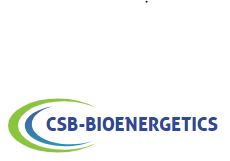OTX2 Anitbody |
|
F52477-0.08ML |
NSJ Bioreagents |
0.08 ml |
EUR 140.25 |
|
|
|
Description: Probably plays a role in the development of the brain and the sense organs. Can bind to the BCD target sequence (BTS): 5'-TCTAATCCC-3'. |
Human IgG antibody Laboratories manufactures the rabbit nucleolin anitbody reagents distributed by Genprice. The Rabbit Nucleolin Anitbody reagent is RUO (Research Use Only) to test human serum or cell culture lab samples. To purchase these products, for the MSDS, Data Sheet, protocol, storage conditions/temperature or for the concentration, please contact rabbit Antibody. Other Rabbit products are available in stock. Specificity: Rabbit Category: Nucleolin Group: Anitbody
Nucleolin Antibody |
|
NSJ Bioreagents |
0.08 ml |
EUR 140.25 |
|
|
|
Description: Nucleolin is the major nucleolar protein of growing eukaryotic cells. It is found associated with intranucleolar chromatin and pre-ribosomal particles. It induces chromatin decondensation by binding to histone H1. It is thought to play a role in pre-rRNA transcription and ribosome assembly. May play a role in the process of transcriptional elongation. Binds RNA oligonucleotides with 5'-UUAGGG-3' repeats more tightly than the telomeric single-stranded DNA 5'-TTAGGG-3' repeats. [UniProt] |
Nucleolin Antibody |
|
NSJ Bioreagents |
0.4 ml |
EUR 322.15 |
|
|
|
Description: Nucleolin is the major nucleolar protein of growing eukaryotic cells. It is found associated with intranucleolar chromatin and pre-ribosomal particles. It induces chromatin decondensation by binding to histone H1. It is thought to play a role in pre-rRNA transcription and ribosome assembly. May play a role in the process of transcriptional elongation. Binds RNA oligonucleotides with 5'-UUAGGG-3' repeats more tightly than the telomeric single-stranded DNA 5'-TTAGGG-3' repeats. [UniProt] |
Nucleolin Antibody |
|
NSJ Bioreagents |
0.08 ml |
EUR 140.25 |
|
|
|
Description: Nucleolin (NCL), a eukaryotic nucleolar phosphoprotein, is involved in the synthesis and maturation of ribosomes. It is located mainly in dense fibrillar regions of the nucleolus. Human NCL gene consists of 14 exons with 13 introns and spans approximately 11kb. The intron 11 of the NCL gene encodes a small nucleolar RNA, termed U20. [Wiki] |
Nucleolin Antibody |
|
NSJ Bioreagents |
0.4 ml |
EUR 322.15 |
|
|
|
Description: Nucleolin (NCL), a eukaryotic nucleolar phosphoprotein, is involved in the synthesis and maturation of ribosomes. It is located mainly in dense fibrillar regions of the nucleolus. Human NCL gene consists of 14 exons with 13 introns and spans approximately 11kb. The intron 11 of the NCL gene encodes a small nucleolar RNA, termed U20. [Wiki] |
Nucleolin Antibody |
|
NSJ Bioreagents |
0.08 ml |
EUR 140.25 |
|
|
|
Description: Nucleolin (NCL), a eukaryotic nucleolar phosphoprotein, is involved in the synthesis and maturation of ribosomes. [Wiki] |
Nucleolin antibody |
|
Fitzgerald |
100 ug |
EUR 407 |
|
|
|
Description: Rabbit polyclonal Nucleolin antibody raised against the C terminal of NCL |
Nucleolin antibody |
|
Fitzgerald |
50 ug |
EUR 467 |
|
|
|
Description: Rabbit polyclonal Nucleolin antibody raised against the N terminal of NCL |
Anitbody information
Nucleolin |
|
E8R1307-3 |
EnoGene |
100ul |
EUR 275 |
|
Description: Available in various conjugation types. |
Rat Nucleolin |
|
E01A15049 |
BlueGene |
96T |
EUR 700 |
|
Description: ELISA |
Goat Nucleolin |
|
E01A49955 |
BlueGene |
96T |
EUR 700 |
|
Description: ELISA |
Human Nucleolin |
|
E01A6302 |
BlueGene |
96T |
EUR 700 |
|
Description: ELISA |
Mouse Nucleolin |
|
E01A23796 |
BlueGene |
96T |
EUR 700 |
|
Description: ELISA |
Sheep Nucleolin |
|
E01A102249 |
BlueGene |
96T |
EUR 700 |
|
Description: ELISA |
Canine Nucleolin |
|
E01A67385 |
BlueGene |
96T |
EUR 700 |
|
Description: ELISA |
Bovine Nucleolin |
|
E01A84822 |
BlueGene |
96T |
EUR 700 |
|
Description: ELISA |
Monkey Nucleolin |
|
E01A76102 |
BlueGene |
96T |
EUR 700 |
|
Description: ELISA |
Porcine Nucleolin |
|
E01A58673 |
BlueGene |
96T |
EUR 700 |
|
Description: ELISA |
Chicken Nucleolin |
|
E01A93536 |
BlueGene |
96T |
EUR 700 |
|
Description: ELISA |
Nucleolin Antibody |
|
48154 |
SAB |
100ul |
EUR 429 |
Nucleolin Antibody |
|
48154-100ul |
SAB |
100ul |
EUR 399.6 |
Nucleolin Antibody |
|
48154-50ul |
SAB |
50ul |
EUR 286.8 |
Nucleolin Antibody |
|
48155 |
SAB |
100ul |
EUR 429 |
Nucleolin Antibody |
|
48155-100ul |
SAB |
100ul |
EUR 399.6 |
Nucleolin Antibody |
|
48155-50ul |
SAB |
50ul |
EUR 286.8 |
